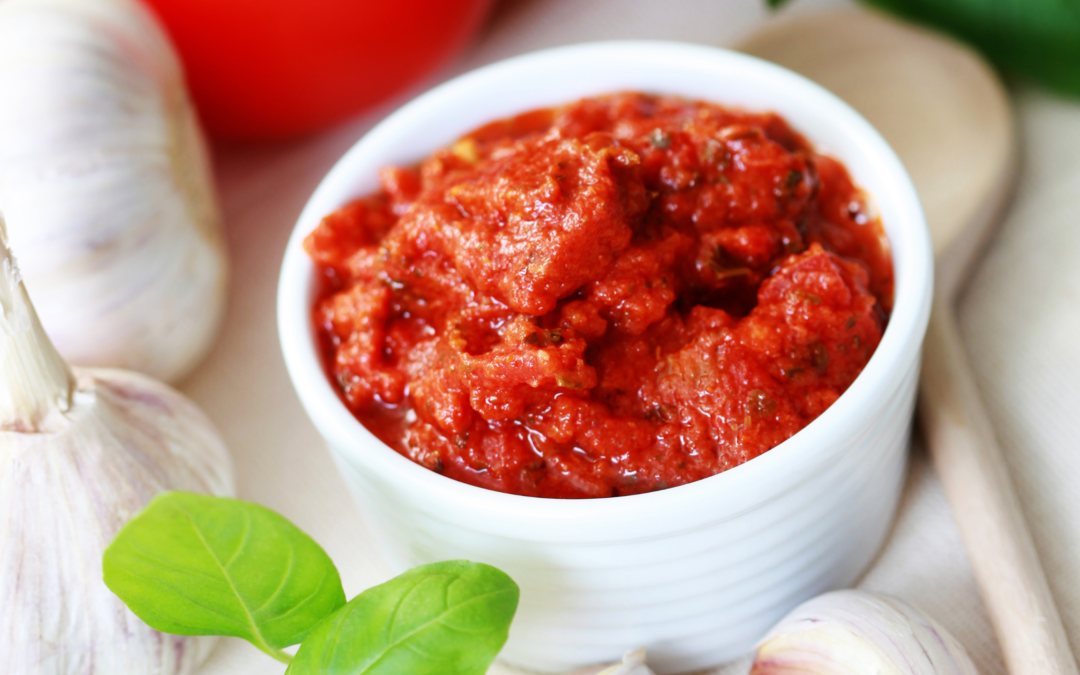
by Tomato Wellness | Mar 2, 2021 | Health, News
Can consuming tomato products reduce the risk of certain diseases and contribute to total/cause-specific mortality? In a study written by Cambridge University Press, researchers aimed to determine the long-term effects of tomato and lycopene consumption. In order to do so, they began by assessing the changes in cardio-metabolic factors, such as obesity, hypertension, and blood sugar levels. The participants of the study included 23,935 individuals who were, on average, 47 years old and approximately half of them were men. The results of the study showed that tomato intake and lycopene consumption were inversely related with the total mortality, cause-specific mortality, congenital heart disease, and cerebrovascular mortality. However, these results were independent of certain factors, such as anthropometric, clinical, and nutritional parameters. Surprisingly, lycopene consumption and risk of certain diseases were not affected by age and obesity. Overall, the results suggest that tomato consumption can positively impact the health of individuals.
Although further evidence-based studies need to be conducted to confirm the impact of lycopene and tomato intake, we know that tomato products can reduce the risk of certain diseases. Canned, cooked, and fresh tomatoes all contain lycopene, which has been shown to improve overall health. In addition to lycopene, tomatoes are rich in vitamin A, vitamin C, fiber, potassium, iron, and other antioxidants. These nutrients are critical for both short and long term health, so it’s important to incorporate tomato products into your meals. Tomato is a versatile ingredient and can be paired well with just about any food — pasta, pizza, sandwiches, salads, and more! So, go ahead and dive into the goodness of canned tomatoes for yourself!
For other tomato news, check out:
Top 11 Reasons to Go Red with Tomato Products
Can Tomatoes Help Your Kid Eat More Veggies?
What is Lycopene?

by Tomato Wellness | Mar 1, 2021 | Food and Nutrition
Meet Sammi Haber Brondo, MS, RD who is the Tomato Wellness Registered Dietitian of the month for March 2021! Sammi is a Registered Dietitian Nutritionist with a private practice in NYC, Sammi Brondo Nutrition. Sammi graduated with a degree in Psychology from the University of Michigan and a Master’s of Science in Clinical Nutrition from New York University. She’s the author of The Essential Vegetable Cookbook, a cookbook with 130 simple and delicious vegetable-focused recipes. Sammi practices an all foods fit approach to nutrition and believes that in order for a diet to be sustainable, it also has to be realistic and enjoyable. She shares more about this philosophy in her membership program, All Foods Fit, and on her Instagram account, @veggiesandchocolate.
Sammi says, “I love using canned tomato products because they’re easy to use, versatile and super shelf stable. I pretty much always keep canned tomatoes in my pantry so that I have them ready to go for any recipe. In a pinch, I like to use them to make a delicious tomato sauce for pasta, a hearty chili or even shakshuka. Crushed and diced canned tomatoes are some of my favorite staples to keep in my kitchen!”

This month, Sammi is sharing one of her favorite recipes featuring canned tomato products: Cheesy Cauliflower Gnocchi Bolognese Bake. According to Sammi, “this meal has everything you could ever want in a meal: cheese, cauliflower gnocchi, a hearty sauce… and did I say melted cheese?! You’re gonna love this surprisingly healthy recipe.” Get the recipe here!
We are so glad to have Sammi as our RD of the month. Be sure to follow along on her Instagram and Pinterest accounts, where she shares healthful and nutritious recipes!

by Tomato Wellness | Feb 22, 2021 | Media Recipe, Recipes
Tired of the same old spaghetti and meatballs every week? Shake up your pasta routine with this quick and easy Puttanesca Pasta. Puttanesca is a classic Italian sauce consisting of anchovies, tomatoes, olives, and capers, creating the perfect balance of salty and savory. Canned tomatoes are the star of this dish, providing bright color and flavor, as well as being a nutrition powerhouse. Tomatoes are packed with lycopene, a cancer-fighting compound, as well as vitamin C, iron, and potassium. Plus, canned tomatoes actually have a higher lycopene content than fresh, as the cooking and canning process enhances the availability of the nutrient, making it easier for your body to absorb.
You can feel good about serving this delectable Mediterranean-inspired meal to your family, and they will delight in the complex flavors. To make this meal extra special, serve with a simple side salad dressed with olive oil and balsamic vinegar. Whether you’re enjoying Puttanesca Pasta for a Sunday family dinner or a simple weeknight meal for one, you’ll be satisfied.
For the full recipe, visit our friends at Pacific Coast Producers.
For other delicious recipes, check out some of our favorites:
Chipotle Tomato Rice POWER Bowl
Swiss Chard Pecan Lasagna
Pan Seared Pork Chops with Bourbon Peach Compote

by Tomato Wellness | Feb 22, 2021 | Food and Nutrition
Is a tomato a vegetable or a fruit? Or could it really be both? Read on to see what history has to say about it!
This is always a fun bit of trivia, but while people might think they know the answer, they might not know technically why. It is all the more murky because in 1893 the supreme court ruled in the case of “NIX v. HEDDEN” tomatoes were to be considered vegetables. You can actually read the original court filings here for you history nuts: NIX v. HEDDEN, 149 U.S. 304 (1893).

So, why is a tomato a vegetable and not a fruit? The age-old question actually has an answer—it’s both! According to the Encyclopedia Britannica: Tomatoes are fruits that are considered vegetables by nutritionists. Botanically, a fruit is a ripened flower ovary and contains seeds. Tomatoes, plums, zucchinis, and melons are all edible fruits, but things like maple “helicopters” and floating dandelion puffs are fruits too. For some reason, people got hung up on tomatoes, but the “fruit or vegetable” question could also work for any vegetable with seeds.
Now, nutritionally, the term “fruit” is used to describe sweet and fleshy botanical fruits, and “vegetable” is used to indicate a wide variety of plant parts that are not so high in fructose. In many cultures, vegetables tend to be served as part of the main dish or side, whereas sweet fruits are typically snacks or desserts. Thus, roots, tubers, stems, flower buds, leaves, and certain botanical fruits, including green beans, pumpkins, and of course tomatoes, are all considered vegetables by nutritionists. There is no hard-and-fast rule that clearly designates a botanical fruit as a vegetable, but, given that tomatoes are generally not used in desserts and are closely related to other fruit-vegetables (e.g., eggplants and peppers), it is not too counterintuitive for tomatoes to be classified as vegetables.
Our general feeling is that no matter how you classify it, tomatoes are delicious, nutritious, and we should all be eating more!
For other tomato-related content, check out:
Can Pizza Be a Health Food?
Reducing Cardiovascular Disease with Tomato Products
How Tomatoes Help Fight Prostate Cancer

by Tomato Wellness | Feb 20, 2021 | Health, News
How does tomato consumption affect prostate cancer in men? The most common type of cancer among Western men is prostate cancer, but some studies suggest that men who consume more tomato products can reduce the risk of prostate cancer. In a recent Adventist Health Study, researchers wanted to determine the correlation between tomato intake and prostate cancer. The participants of the study included 27,934 Adventist men who did not have prostate cancer in the beginning of the study. After a 7.9 year follow-up, there were 1,226 men who ended up having prostate cancer and 355 of these men were greatly affected, as their cancer was aggressive. The results of the study showed that those who consumed 64-71 grams of canned and cooked tomato products per day had a reduced risk of prostate cancer. Though other factors need to be taken into consideration when making this assumption, there seems to be a significant inverse relationship between lycopene consumption and prostate cancer.
Prostate cancer is a serious issue among men, so it’s important to spread awareness about this topic and discover preventive measures. More than 1.3 million men are diagnosed with prostate cancer each year, and numerous studies suggest that lycopene has cancer-fighting properties. Lycopene can be found in tomato products, which contain anti-carcinogenic compounds, such as vitamin A, vitamin C, and fiber. With early detection and higher intake of fruits and vegetables, prostate cancer can be reduced. Thus, it’s important to ensure that you are eating healthy, well-balanced meals and staying active on a daily basis. With so many benefits surrounding canned tomatoes, go ahead and incorporate more tomato products into your daily diet to ensure maximum health!
For other tomato news, check out:
Top 11 Reasons to Go Red with Tomato Products
Can Tomatoes Help Your Kid Eat More Veggies?
What is Lycopene?







Recent Comments